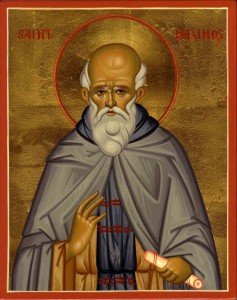As you read Maximus, his holistic view of the human person is more than evident. In a more explicit way than his predecessor, Maximus shows that the human intellect is not unaffected by man’s corrupt and mortal nature. For while it is certainly true, as St. Cyril demonstrated, that it is the body which actually suffers corruption and which is consequently in need of resurrection, it is also equally true that man’s corrupt and mortal state affects the operation of the whole person, the soul, that is, as well as the body. Hence, the intellect, understood as the deepest and most responsive part of the soul, shares in and so also suffers from the present corruptibility of the human body.
Maximus’ emphasis on the future incorruptibility of the intellect may perhaps be traced back to a reference to the Transfiguration in Gregory of Nyssa, who expressed the view that the soul, when united with Christ, shines with the same incorruptibility as was revealed on Tabor. Corruptibility, then, even if only implicitly, is ascribed by Gregory also to the human soul before its deification.
Hopefully this is beginning to make sense. Humans are composed of both a corruptible nature, the body, and an incorruptible nature, the soul. So, technically, one would deduce that the body is what needs to be made incorruptible and not the soul. But we also know that a person is composed of a soul and a body. That is what makes us who we are. So the Fathers had to find some way to express what happens to a person when they die, given that our belief is that Jesus’ resurrection from the dead foretells our resurrection from the dead.
Maximus’ reference to the intelligible Theophany of Christ, therefore, should be understood primarily as a comment on the present state of man, on his corrupt and mortal nature, which obstructs his intended intelligible participation in the Divine Life.
Again we have to remember that the Eastern Fathers set forth that the primary task during this early life is to actualize the potential God has given to humans to become more fully in His likeness – life’s primary goal is Theosis.
Maximus notes that God, even in the life to come, will always remain beyond the capacity of the created human intellect. Maximus states, God surpasses every power and operation of the intellect and man’s participation in divine glory leaves no impression whatever on the intellect of the one attempting to comprehend.

